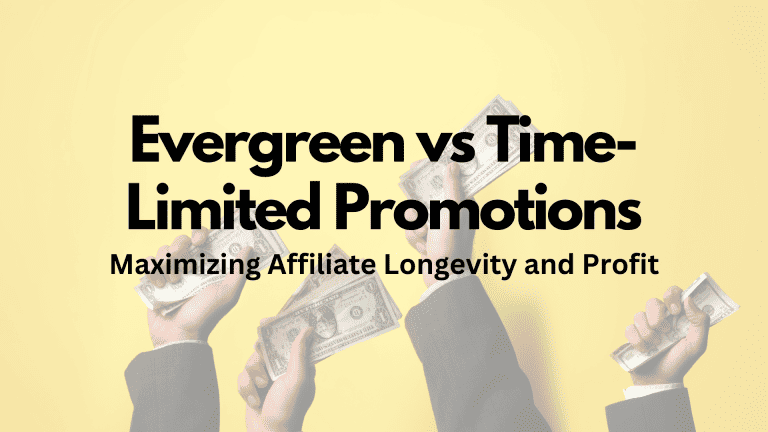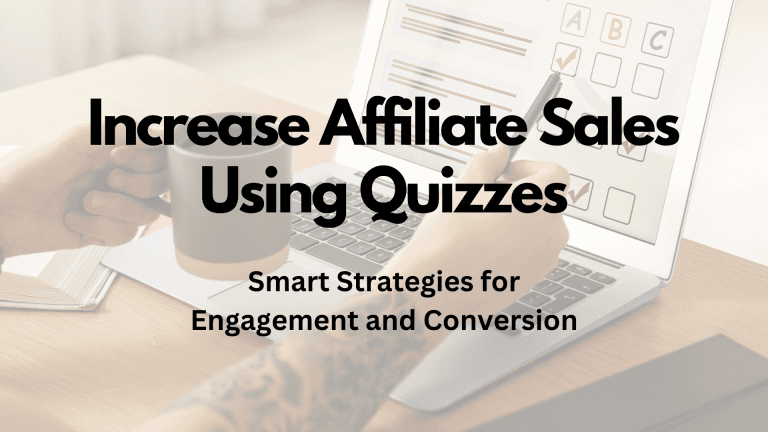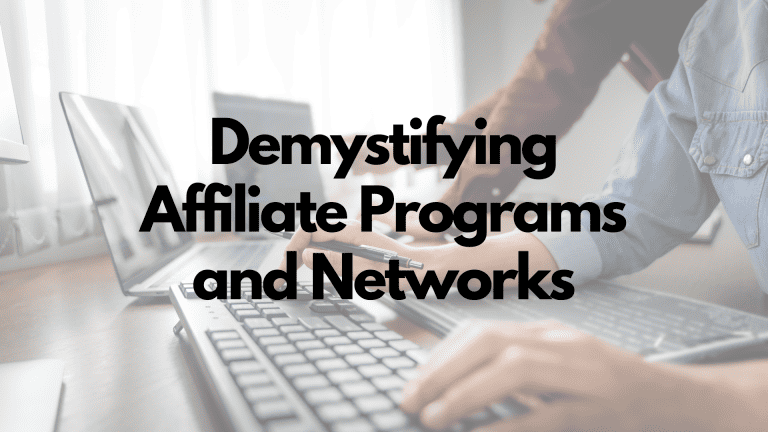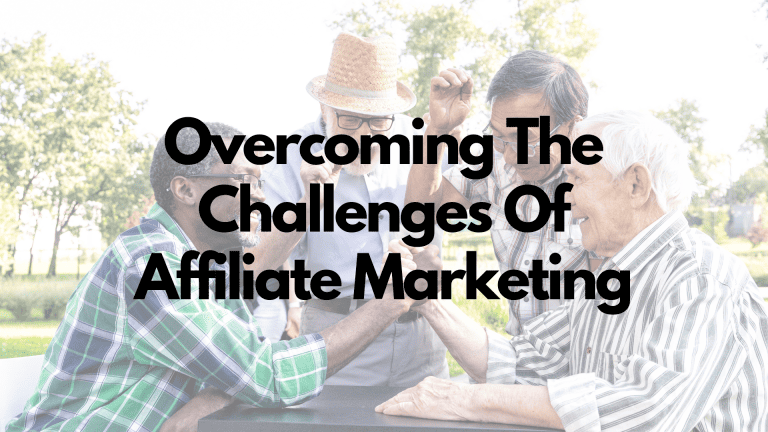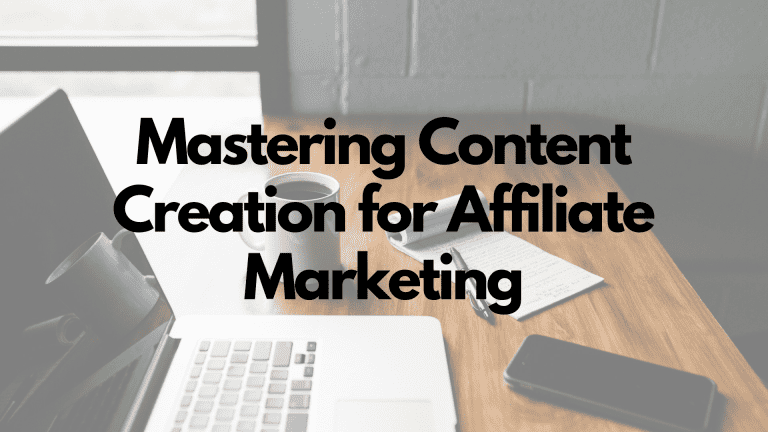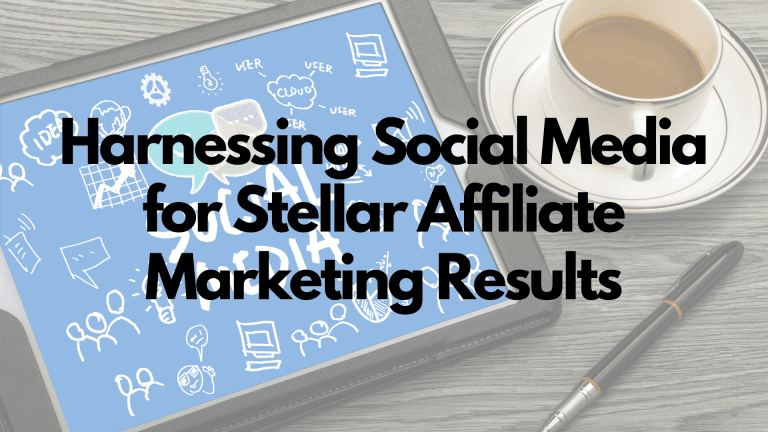
In the rapidly evolving landscape of digital marketing, the convergence of social media and affiliate marketing has emerged as a powerhouse strategy for businesses seeking to maximize their affiliate marketing results and drive sales.
This symbiotic relationship leverages the massive user bases of popular social platforms to amplify the reach and impact of affiliate marketing campaigns.
As users spend an increasing amount of time on social media platforms, integrating affiliate marketing into these spaces allows businesses to tap into a highly engaged audience and create authentic connections with potential customers.
The potential of social platforms in driving affiliate sales is profound, thanks to their dynamic nature.
Social media provides a unique avenue for businesses to connect with their audience, fostering trust and loyalty.
Unlike traditional advertising, social platforms offer an interactive experience, allowing users to share and engage in real-time.
This engagement increases brand visibility and enhances affiliate marketing effectiveness.
By strategically leveraging social media features, businesses can harness word-of-mouth marketing, driving affiliate sales through authentic recommendations.
The integration of social media and affiliate marketing is a compelling strategy with the potential to yield stellar results for businesses of all sizes.
The Power of Social Media in Today's World
A massive user base on major social platforms underscores the monumental impact these digital spaces have on global connectivity.
Platforms such as Facebook, Instagram, Twitter (now X), and LinkedIn boast billions of active users collectively.
This vast and diverse user base presents an unparalleled opportunity for businesses to reach and engage with a broad spectrum of audiences.
Whether targeting specific demographics, niches, or a global market, the sheer scale of social media platforms provides an expansive canvas for businesses to showcase their products or services.
The ability to tap into this immense audience pool is a key factor in understanding the transformative potential of social media in shaping modern marketing strategies.
Social media has not merely adapted to the digital age; it has spearheaded a revolution in how social media has transformed modern marketing.
Traditional marketing approaches often relied on one-way communication, with brands broadcasting messages to passive audiences.
In contrast, social media has turned marketing into a dynamic, two-way conversation. Brands can now directly interact with their audience, responding to feedback, addressing concerns, and building genuine relationships.
The transparency and immediacy afforded by social platforms have ushered in an era of authenticity, where consumers seek real connections with the brands they support.
As a result, marketing strategies are shifting from rigid campaigns to ongoing, interactive dialogues, with social media acting as the catalyst for this evolution.
The transformative impact of social media on modern marketing extends beyond mere promotion; it encompasses the fundamental shift from brand-centric communication to fostering meaningful, reciprocal relationships with an engaged audience.
Choosing the Right Platforms for Affiliate Promotion
Facebook stands out as a versatile and widely used platform for affiliate promotion, offering robust advertising options and detailed targeting features.
Its diverse user base allows businesses to target specific demographics and interests effectively.
Instagram, owned by Facebook, is visually driven and ideal for industries with visually appealing products, using images and videos to enhance engagement and drive affiliate sales.
Twitter, known for its real-time and concise communication, is another potent tool for affiliate marketers, suitable for time-sensitive promotions and trending topics.
With its focus on visual discovery, Pinterest is perfect for lifestyle, fashion, and home decor niches.
Creating visually appealing pins that link to affiliate products can leverage the platform's user base seeking inspiration and product recommendations.
Choosing the right platform involves understanding each platform's strengths and demographics.
LinkedIn is suitable for B2B, while lifestyle or fashion affiliates may find a receptive audience on Instagram or Pinterest.
Thorough market research is essential to align affiliate promotions with the platform's user base, ensuring maximum engagement and conversions.
Successful affiliate marketing strategically places products where the right audience is likely to respond positively.
Crafting Engaging Affiliate Posts
Maintaining a delicate balance between promotional and organic content is crucial in crafting engaging affiliate posts.
Social media users are generally averse to content that feels overtly sales-oriented, and an excessive focus on promotion may lead to disengagement or even unfollowing.
To avoid this, successful affiliate marketers intersperse promotional content with organic, value-driven posts.
By providing useful information, entertainment, or insights related to the affiliate niche, marketers can build trust and credibility with their audience.
This trust lays the foundation for more receptive engagement when promotional content is introduced, creating a seamless blend that enhances the overall user experience.
Using compelling visuals and catchy captions is a powerful strategy to capture the attention of social media users.
In the visually driven landscape of platforms like Instagram and Pinterest, eye-catching graphics or high-quality images can make affiliate posts stand out amidst the digital noise.
Pairing these visuals with concise and engaging captions helps convey the value of the affiliate product or service effectively.
The caption should not only provide context and information but also elicit a response from the audience, encouraging likes, comments, and shares.
This interactive approach not only boosts the visibility of the affiliate post but also increases the likelihood of conversions as users actively engage with the content.
Incorporating affiliate links seamlessly into posts is an art that successful affiliate marketers master.
Rather than presenting the affiliate link in a way that feels disruptive or forced, skilled marketers integrate it naturally within the content.
This can be achieved by contextualizing the link within a story, recommendation, or tutorial.
For example, a fitness influencer might seamlessly include an affiliate link to a workout app while sharing their fitness journey.
The key is to make the affiliate link an integral part of the narrative, aligning it with the overall theme and purpose of the post.
By doing so, marketers enhance the user experience, making the promotion feel like a genuine recommendation rather than a blatant sales pitch.
Utilizing Stories and Live Features
The rise of ephemeral content, epitomized by platforms such as Instagram Stories and Facebook Live, has transformed the way users consume and engage with online content.
These features leverage the appeal of real-time and temporary experiences, creating a sense of urgency and authenticity.
Instagram Stories, for instance, allows users to share photos and videos that disappear after 24 hours, providing a perfect avenue for affiliate marketers to deliver time-sensitive promotions or exclusive offers.
Facebook Live takes this concept further by enabling real-time video broadcasts, fostering a direct and immediate connection with the audience.
The ephemeral nature of these features taps into the fear of missing out (FOMO), prompting users to actively engage with content to stay in the loop.
Tips for promoting affiliate products involve creating engaging content aligned with the platform's tone.
Utilize a mix of images, short videos, and text overlays for Stories.
During Live broadcasts, focus on providing real-time value, whether through product demos, Q&A sessions, or exclusive behind-the-scenes glimpses.
Highlight limited-time promotions, exclusive discounts, or product launches to create a sense of urgency and encourage audience engagement.
Engaging with the audience in real-time is crucial for successful affiliate marketing through Stories and Live features.
Respond promptly to comments, questions, and reactions during live sessions to create an interactive and personalized experience.
Acknowledge audience contributions, foster a sense of community, and encourage viewers to share the live session or story.
Active participation in real-time conversations builds stronger connections, enhancing visibility and trust for higher conversion rates.
The power of these features lies in their transience and ability to create genuine, immediate connections with the audience.
Influencer Collaborations for Affiliate Marketing
The synergy between influencers and affiliate marketers has become a potent strategy in the digital marketing landscape.
Influencers, with their dedicated and engaged follower base, can amplify the reach of affiliate products, leveraging their authenticity and authority.
The seamless integration of affiliate promotions into an influencer's content fosters a sense of trust among their audience, resulting in a more receptive and organic response.
This collaboration benefits both parties, as influencers gain a revenue stream through affiliate commissions, while affiliate marketers tap into the influencer's credibility to drive conversions.
Finding and partnering with the right influencers for your niche is a critical step in a successful collaboration.
Start by identifying influencers whose audience aligns with the target demographic for the affiliate product.
Utilize tools and platforms that connect brands with influencers, considering factors such as audience demographics, engagement rates, and the influencer's overall brand image.
It's essential to ensure that the influencer's values and content style align with your brand, creating a seamless integration of the affiliate product into their existing content.
Building a genuine relationship with influencers and providing them with the necessary resources, such as exclusive discounts or product insights, further enhances the collaboration's effectiveness.
Case studies of successful influencer-affiliate collaborations serve as valuable insights into the potential impact of such partnerships.
Examining real-world examples allows marketers to understand the strategies, challenges, and outcomes of influencer collaborations in various niches.
Successful cases often involve influencers authentically integrating affiliate products into their content, sharing personal experiences, and providing unique value to their audience.
By showcasing the tangible results of these collaborations, marketers can glean valuable lessons and best practices for implementing their influencer-affiliate strategies, ensuring a mutually beneficial partnership that resonates with the target audience.
Paid Social Media Advertising for Affiliates
Paid social media advertising has emerged as a powerful tool for affiliates to expand their reach and drive targeted traffic.
Platforms like Facebook and Instagram offer sophisticated advertising solutions, providing affiliates with the means to showcase products or services to highly specific audience segments.
Facebook Ads, for example, allow advertisers to create visually engaging campaigns that appear in users' feeds, while Instagram Sponsored Posts seamlessly integrate sponsored content into users' timelines.
Targeting and retargeting strategies play a pivotal role in maximizing conversions through paid social media advertising.
Affiliates can leverage the detailed targeting options platforms provide to tailor their ads to specific demographics, interests, and behaviours.
Moreover, retargeting allows affiliates to re-engage users who have previously interacted with their content or visited their website, presenting them with personalized ads.
By refining targeting parameters and strategically retargeting, affiliates can ensure their ads reach users who are more likely to convert, optimizing their advertising spend and increasing the overall effectiveness of their campaigns.
Monitoring ad performance and ROI is a crucial aspect of a successful paid social media advertising strategy.
Affiliates must regularly analyze key metrics such as click-through rates, conversion rates, and cost per acquisition to assess the performance of their ads.
Platforms often provide robust analytics tools that offer insights into audience engagement and campaign effectiveness.
By closely monitoring these metrics, affiliates can make data-driven adjustments to their campaigns, refining targeting strategies, ad creatives, and budget allocation.
This iterative approach ensures that the advertising budget is allocated efficiently, maximizing the return on investment and driving optimal results for affiliate promotions.
Building and Nurturing a Social Media Community
Trust and authenticity are paramount in obtaining affiliate marketing results.
Authenticity is the key to earning and maintaining trust, with social media users valuing transparency.
Affiliates must focus on presenting genuine recommendations and experiences, building a foundation of trust.
When followers perceive authenticity, they are more likely to view the affiliate as a reliable source, leading to increased engagement and higher conversion rates.
Engaging with followers, addressing queries, and building loyalty are crucial.
Affiliates should actively participate in conversations, responding promptly to comments and messages.
Demonstrating responsiveness fosters a sense of community and builds rapport. Addressing concerns transparently strengthens trust.
Building loyalty involves consistently delivering value beyond promotional content, and cultivating a dedicated community that supports affiliate promotions.
Strategies for growing and maintaining an engaged follower base include tailored content creation and community interaction.
Analyze audience preferences and tailor content accordingly.
Consistency in posting, using trending hashtags, and collaborating with influencers or brands can increase visibility.
Running giveaways or contests incentivizes engagement and sharing.
Periodic promotions and exclusive discounts maintain interest. Building and nurturing an engaged community requires authenticity, responsiveness, and ongoing value delivery.
Tracking and Analytics for Social Affiliate Campaigns
Tools like Facebook Pixel and Google Analytics are invaluable assets for tracking conversions in social affiliate campaigns.
The Facebook Pixel, for instance, allows affiliates to measure the effectiveness of their ads by tracking user actions on their website.
It provides insights into user behaviour, helping affiliates understand how users interact with their site after clicking on a Facebook ad.
Google Analytics complements this by offering a comprehensive view of website traffic, user engagement, and conversion data.
Integrating these tools into affiliate campaigns enables marketers to gather actionable data, optimize ad targeting, and refine strategies for improved performance.
Understanding key metrics is essential for gauging the success of social affiliate campaigns.
Metrics such as click-through rates (CTR), conversion rates, and return on investment (ROI) provide crucial insights into the effectiveness of different elements within a campaign.
A high CTR indicates a compelling ad, while a strong conversion rate signifies that the audience is not only clicking but also taking the desired actions.
Monitoring these metrics over time helps affiliates identify trends, pinpoint areas for improvement, and make data-driven decisions to maximize campaign effectiveness.
Adjusting strategies based on performance data is a fundamental aspect of optimizing social affiliate campaigns.
Regularly analyzing tracking and analytics data allows affiliates to identify which strategies are yielding the best results and which areas may need refinement.
If certain demographics or ad creatives are consistently outperforming others, adjustments can be made to allocate resources more effectively.
Similarly, if a particular platform or type of content is not generating the desired outcomes, it may be beneficial to shift focus or modify the approach.
This iterative process of refining strategies based on performance data ensures that social affiliate campaigns remain dynamic and responsive to the evolving landscape of user behaviour and platform algorithms.
Affiliate Marketing Results Conclusion
The convergence of social media and affiliate marketing has proven to be a game-changer, offering businesses an unparalleled avenue for expanding their reach and driving sales.
The symbiotic relationship between these two domains taps into the vast user bases of popular social platforms, creating authentic connections with potential customers.
The power of social media in driving affiliate sales lies not just in its massive audience but in its ability to facilitate interactive experiences, fostering trust and loyalty among users.
As we reflect on the transformative potential of social media in shaping modern marketing strategies, it becomes evident that these platforms have evolved beyond mere promotional spaces.
Social media has redefined the way businesses engage with their audience, transitioning from one-way communication to dynamic, two-way conversations.
The authenticity and immediacy afforded by social platforms have ushered in an era where building genuine relationships with the audience is paramount.
This shift from brand-centric communication to fostering meaningful connections highlights the profound impact of social media on the marketing landscape.
The potential for innovation and adaptation is limitless.
As social media continues to shape the way we connect, communicate, and consume information, marketers are presented with opportunities to explore new strategies, embrace emerging trends, and forge authentic connections with their audience.
The dynamism of social platforms offers a canvas for creativity, allowing marketers to experiment with engaging content, collaborative ventures, and cutting-edge technologies.
Call to Action
I invite you to dive into the world of social media affiliate marketing, harnessing the power of these platforms to elevate your brand and drive meaningful engagement.
Share your experiences, successes, or challenges in the comments section below.
Let's foster a community of knowledge and collaboration where marketers can learn from each other, inspire innovation, and collectively navigate the exciting landscape of social media affiliate marketing.
Embrace the opportunities, stay agile, and shape the future of digital marketing through the compelling synergy of social media and affiliate strategies.


